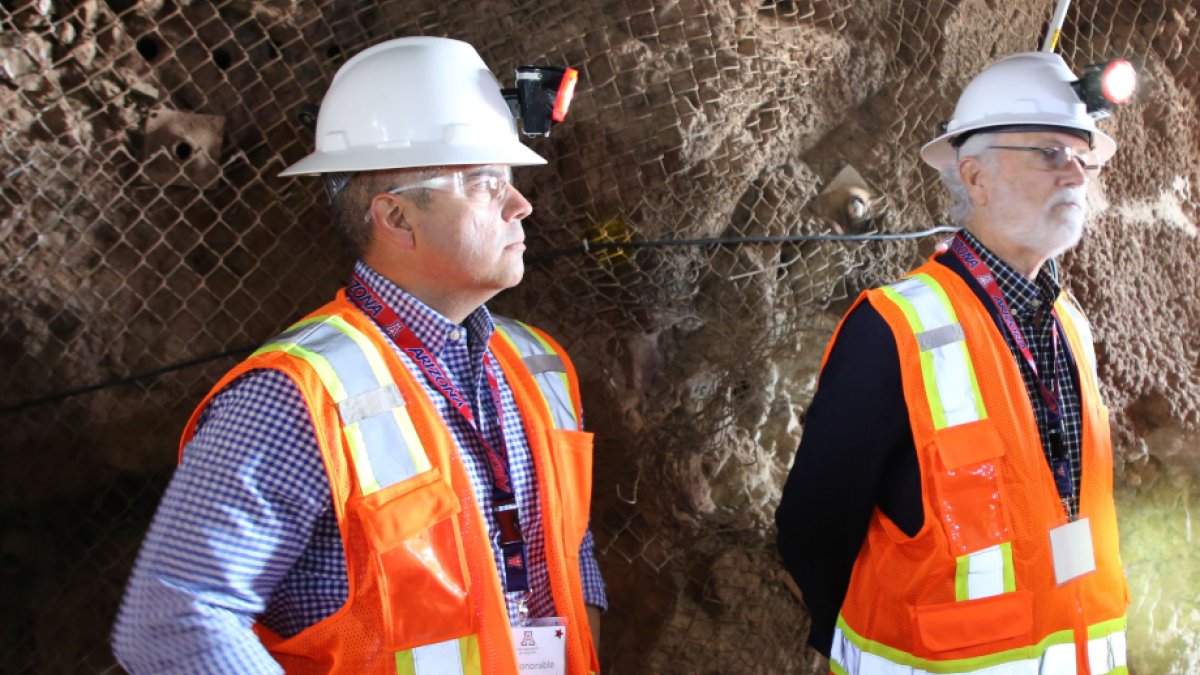Ciscomani Introduces Bill to Strengthen the Domestic Supply of Critical Minerals
Image

January 29, 2025
‘Arizona leads the way in the production of Critical Minerals, which are key to our economy, national security, and clean energy technologies’
WASHINGTON, D.C. - U.S. Congressman Juan Ciscomani (AZ-06) re-introduced an effort to strengthen the domestic supply of critical minerals by ensuring parity between Critical Materials, as defined by the Department of Energy (DOE), and Critical Minerals, as defined by the U.S. Geological Survey (USGS). Ciscomani is joined by Rep. Susie Lee (NV-03) in this bipartisan effort.
Currently, DOE’s Critical Material list has the disadvantage of not being eligible for the more extensive energy-focused benefits conferred to the USGS Critical Mineral list. Ciscomani’s bill, the Critical Mineral Consistency Act (H.R. 755) would add the DOE’s list of Critical Materials to USGS’ list of Critical Minerals.
This will eliminate confusion between the two definitions and confer the same benefits to both Critical Materials and Critical Minerals, allowing the U.S. to strengthen its domestic supply of critical minerals.
“Arizona leads the way in the production of Critical Minerals, which are key to our economy, national security, and clean energy technologies,” said Congressman Ciscomani. “As demand for these resources continues to grow, it is essential that our federal agencies are operating with the same understanding and definitions. My legislation will ensure parity between U.S. Geological Survey Critical Minerals and Department of Energy materials lists to include copper, electrical steel, fluorine, silicon, and silicon carbide on the Critical Minerals list, a long overdue classification. This will strengthen our domestic supply and secure these resources for a more resilient future.
“Accessing critical minerals and materials is essential for our national security and energy grid. Government red tape should not be a barrier to development and innovation,” said Congresswoman Susie Lee. “There should not be different definitions on what a critical resource is depending on what department creates the list. This commonsense, bipartisan bill will provide the clarity that both industry and federal agencies need.”
This legislation is supported by the following organizations: Transformer Manufacturing Association of America (TMAA), Zero Emission Transportation Association (ZETA), National Electric Manufacturers Association (NEMA), Business Council for Sustainable Energy (BCSE), the Copper Development Association (CDA), and National Mining Association (NMA).
"We firmly believe all minerals are critical, and this commonsense legislation is an important step forward,” said Rich Nolan, NMA president and CEO. “The Critical Mineral Consistency Act is a win for American miners, for domestic supply chain security and is essential to ensuring domestic production can increasingly meet soaring demand. We applaud the leadership of Rep. Ciscomani in making sure made-in-America can increasingly mean mined-in-America.”
“Congratulations and thank you Rep. Ciscomani for once again introducing this important legislation, supported by us and several clean energy and electrification associations” said Adam Estelle, President & CEO of CDA. “We recognize that a strong domestic supply chain for ALL DOE Critical Materials is essential, and this Act will go a long way to supporting those industries in here in the United States.”
Read the full bill text here.
Background:
- In the 118th Congress, Congressman Ciscomani introduced this legislation, which passed the House of Representatives by a vote of 245 – 155.
- While the statutory definition of Critical Minerals and Critical Materials are similar, the DOE and USGS created very different methodologies when developing their lists.
- The USGS finalized the Critical Mineral methodology and list in 2022, focused solely on the supply and relied on old data from 2015-2018.
- On the other hand, when DOE announced the Critical Material list in 2023, they balanced essentiality and supply risk and looked at projections into the short and medium-term future, rather than looking in the past.
- Copper, electrical steel, fluorine, silicon and silicon carbide are all Critical Materials and not Critical Minerals.
###
Issues:
Energy